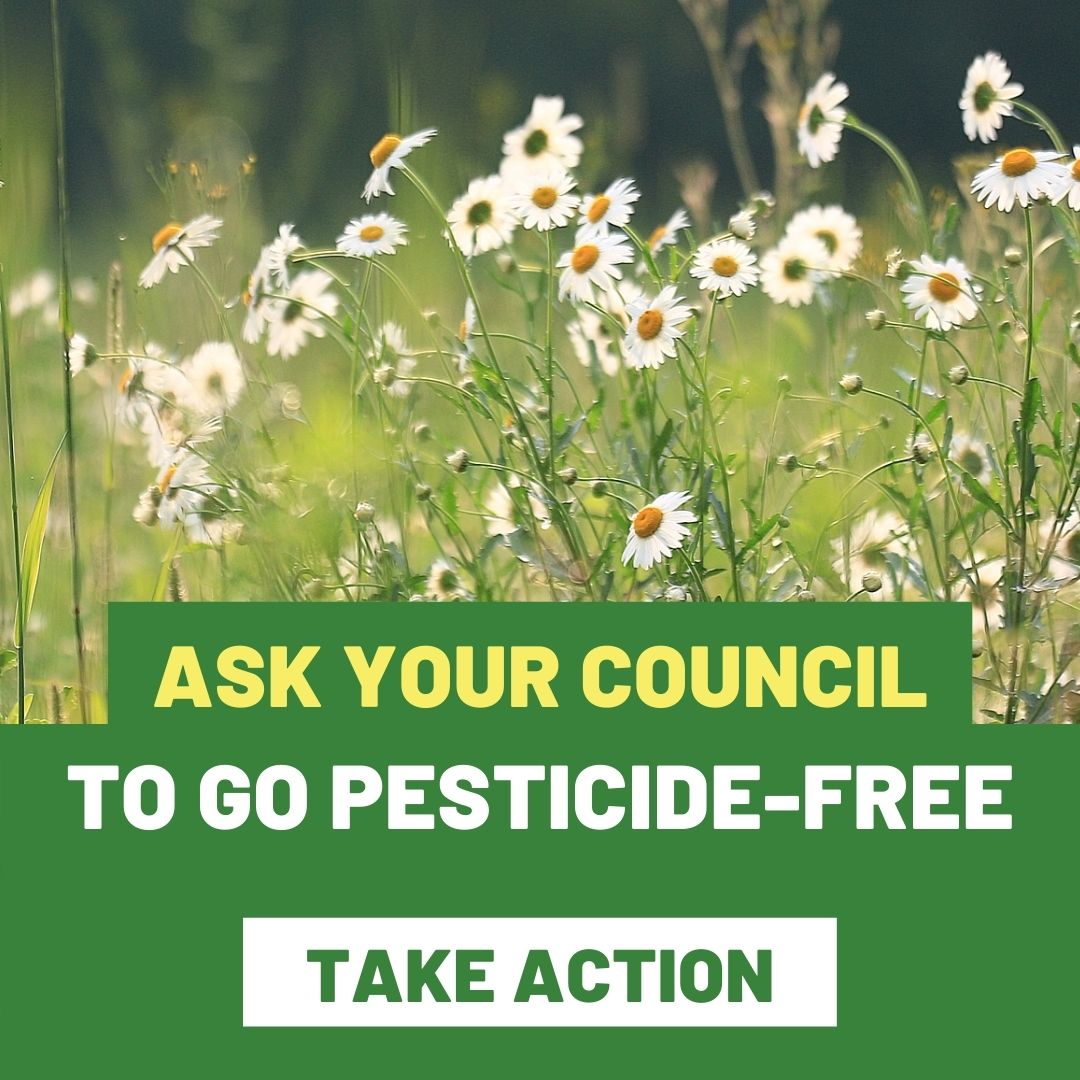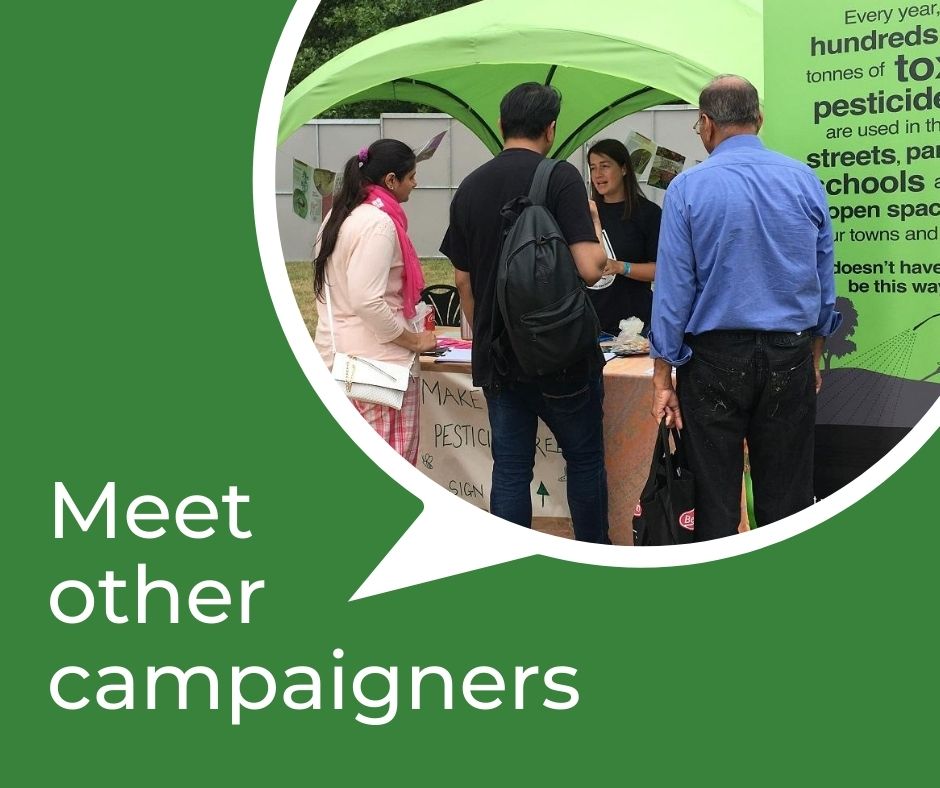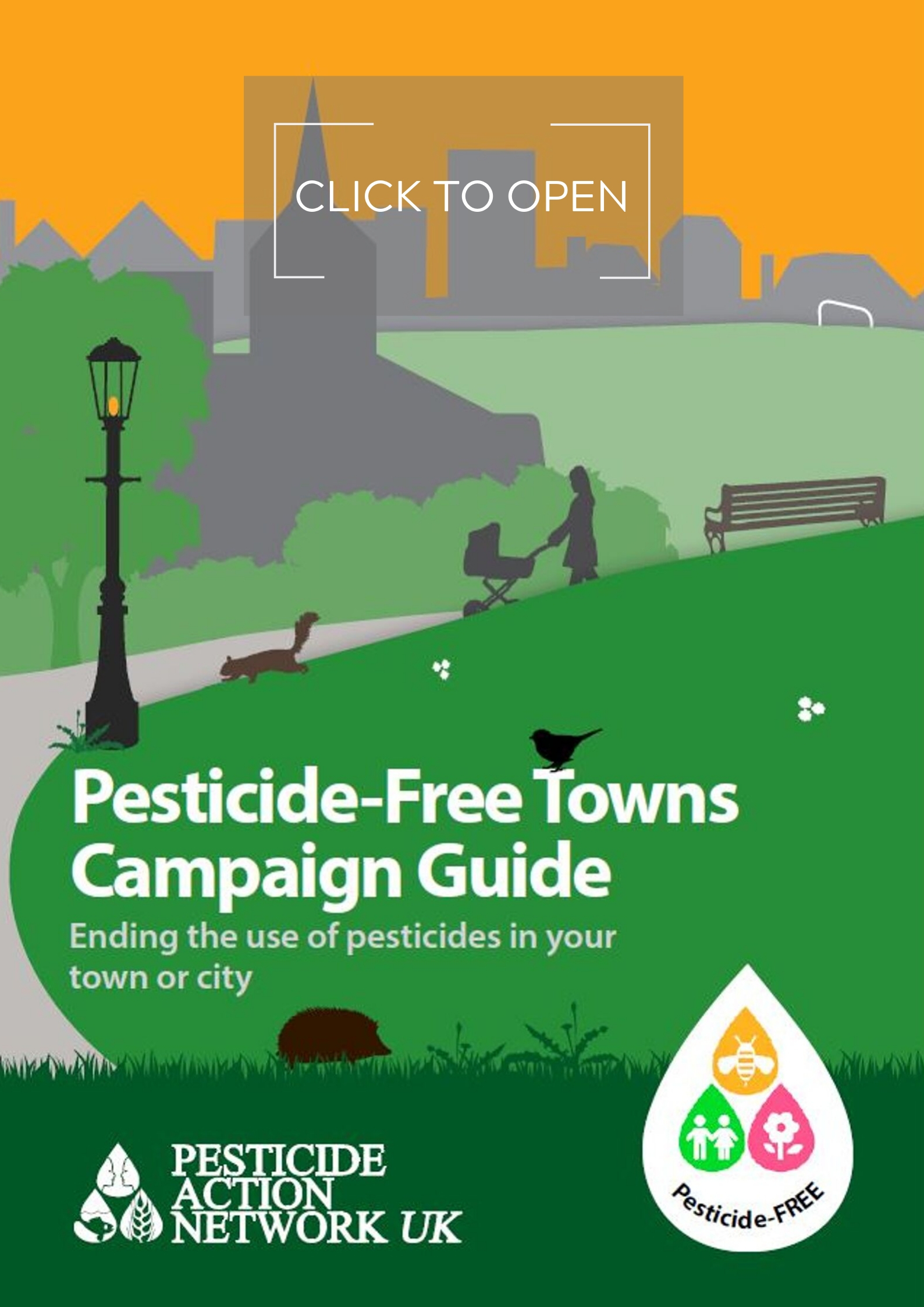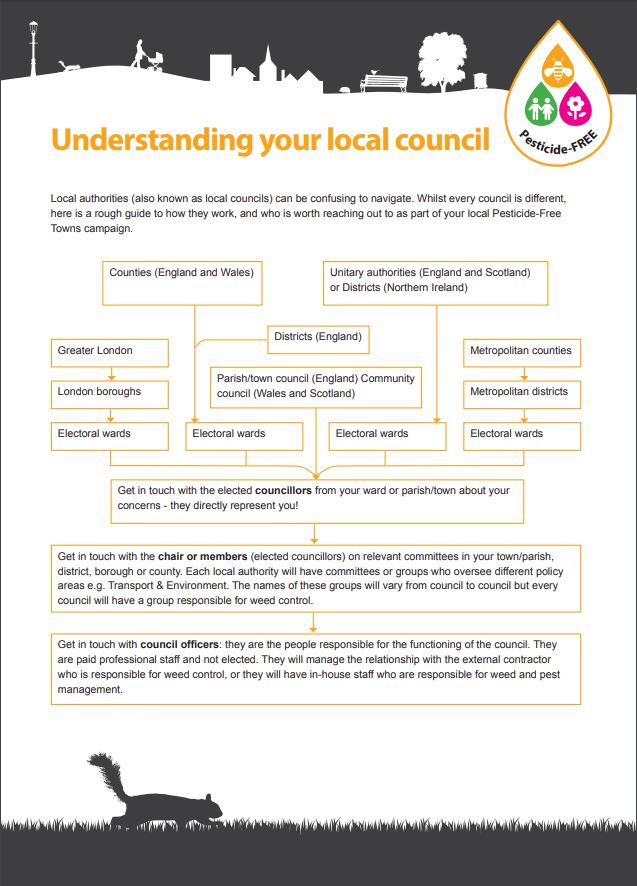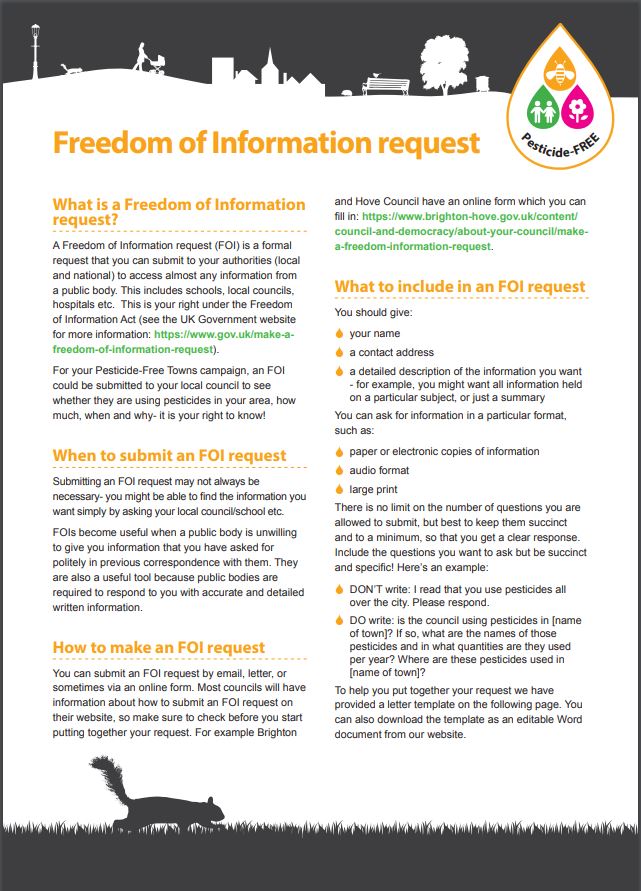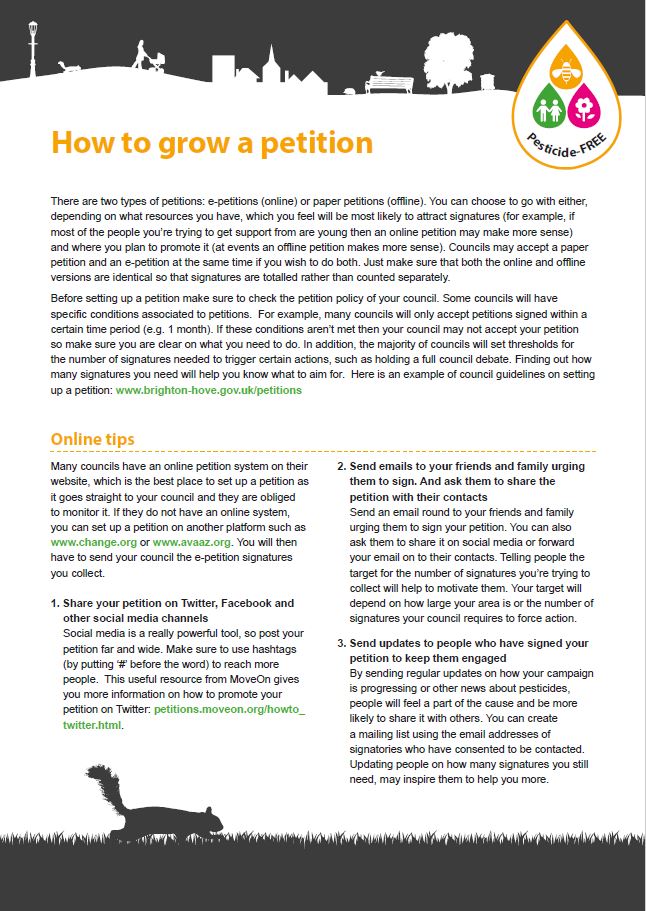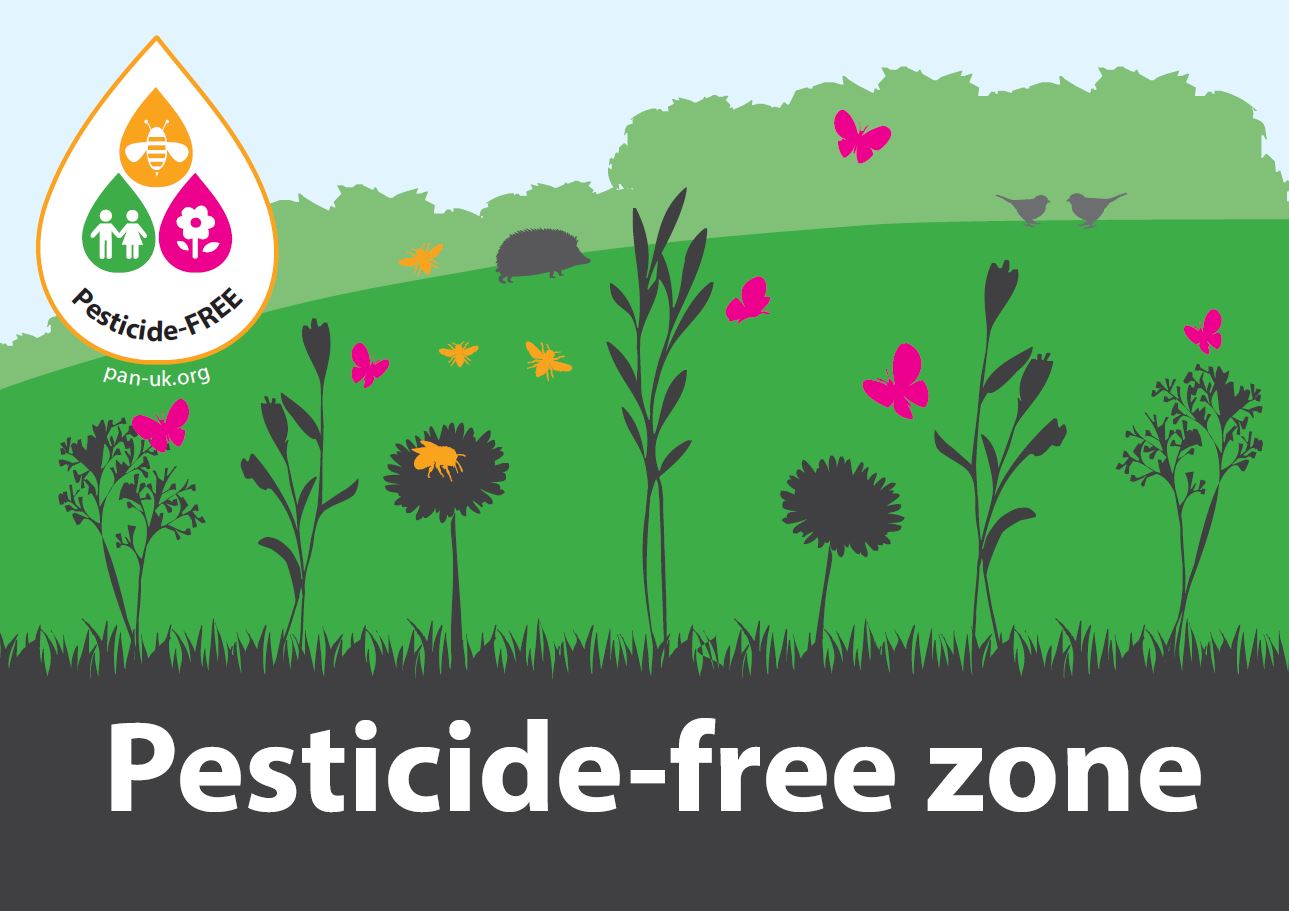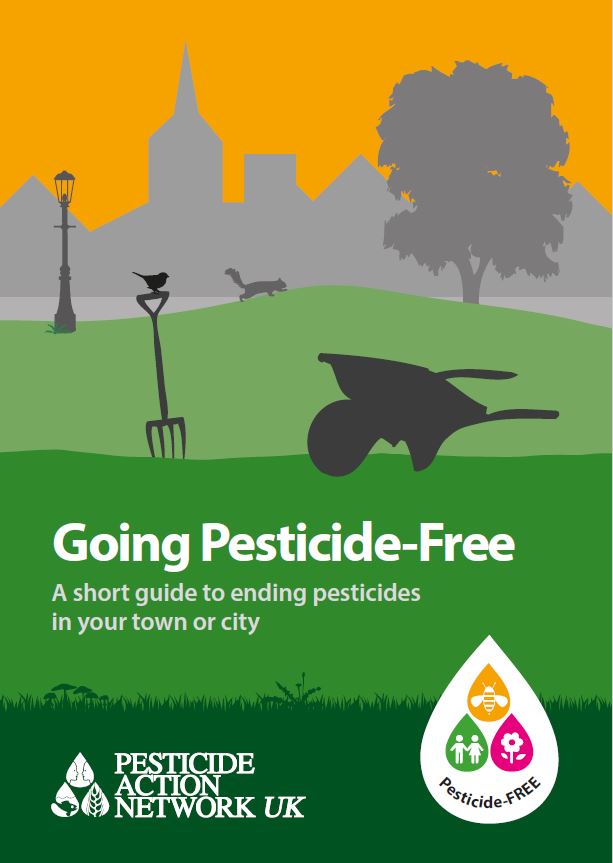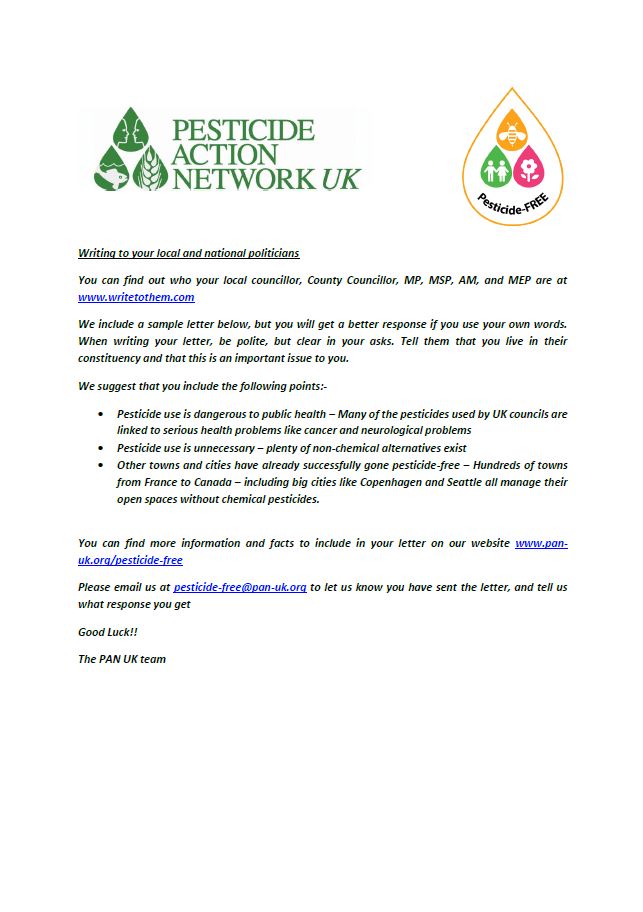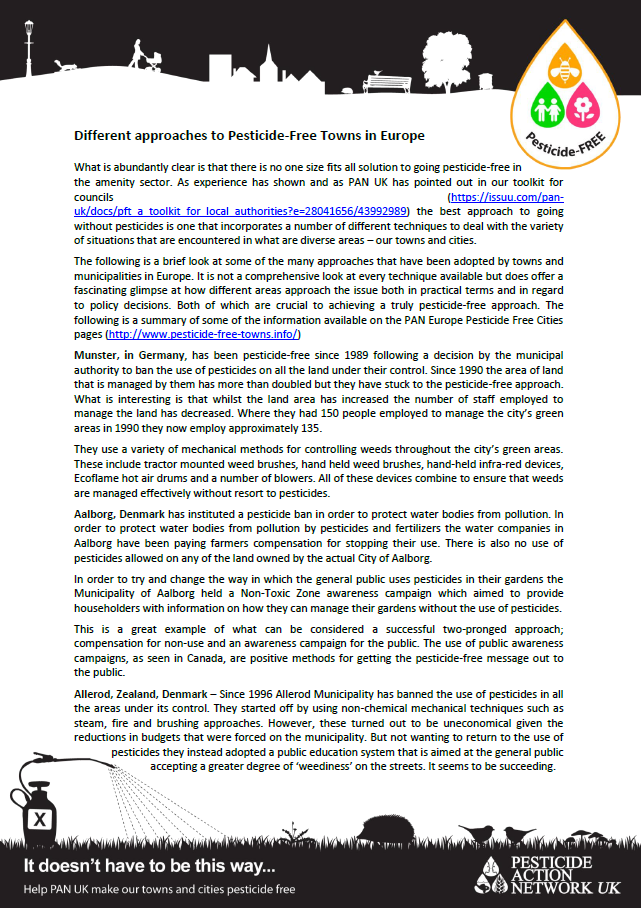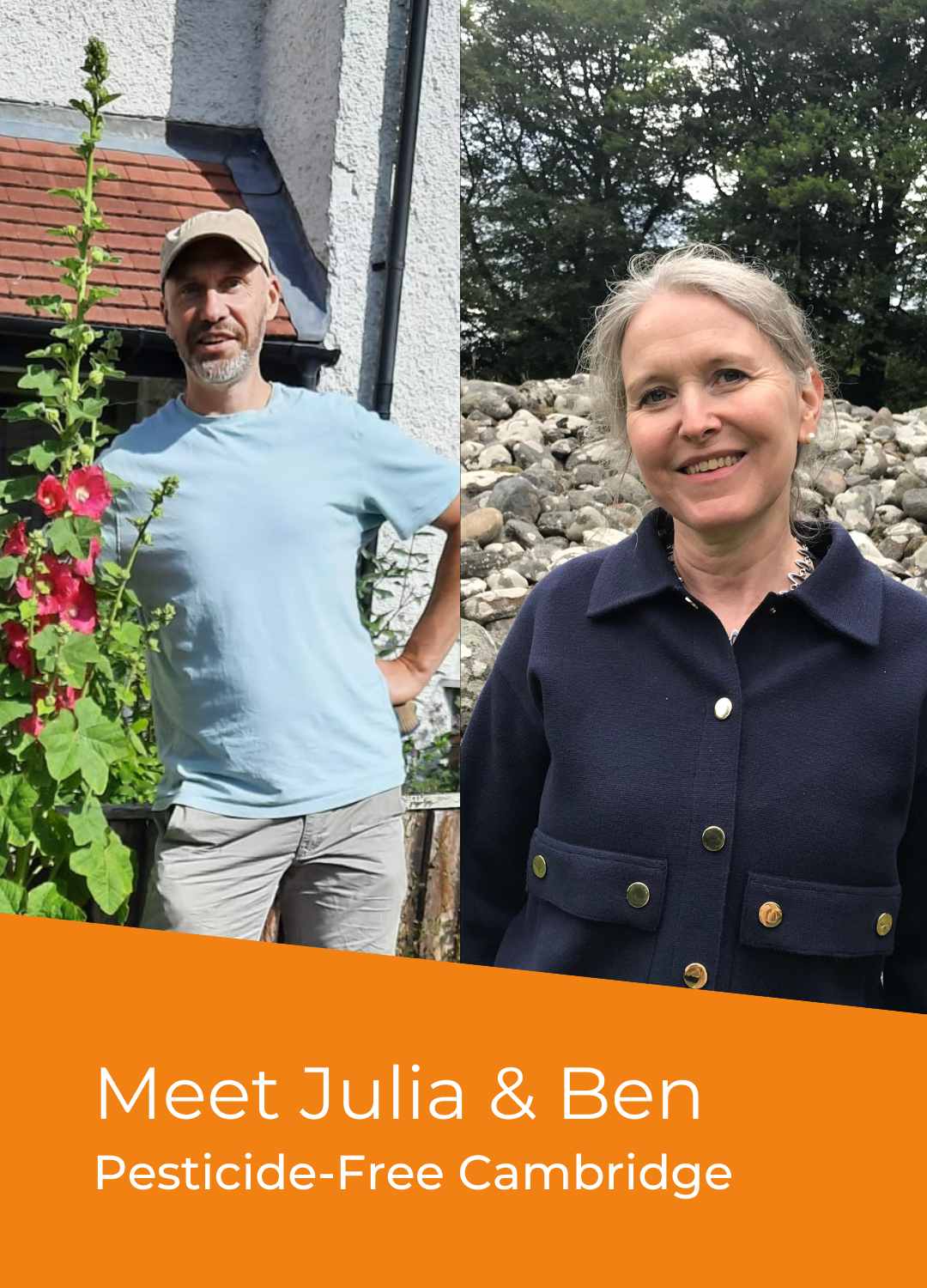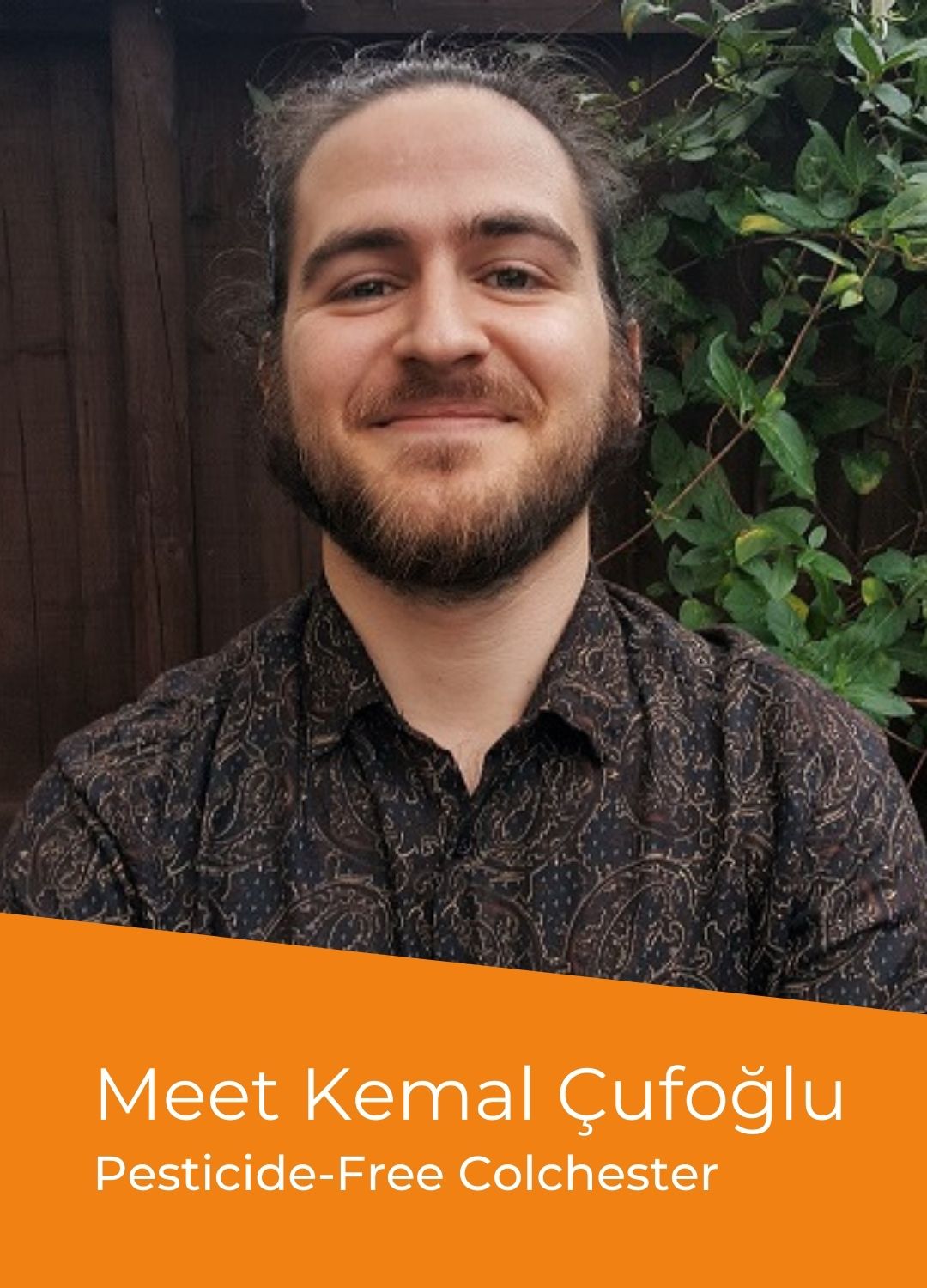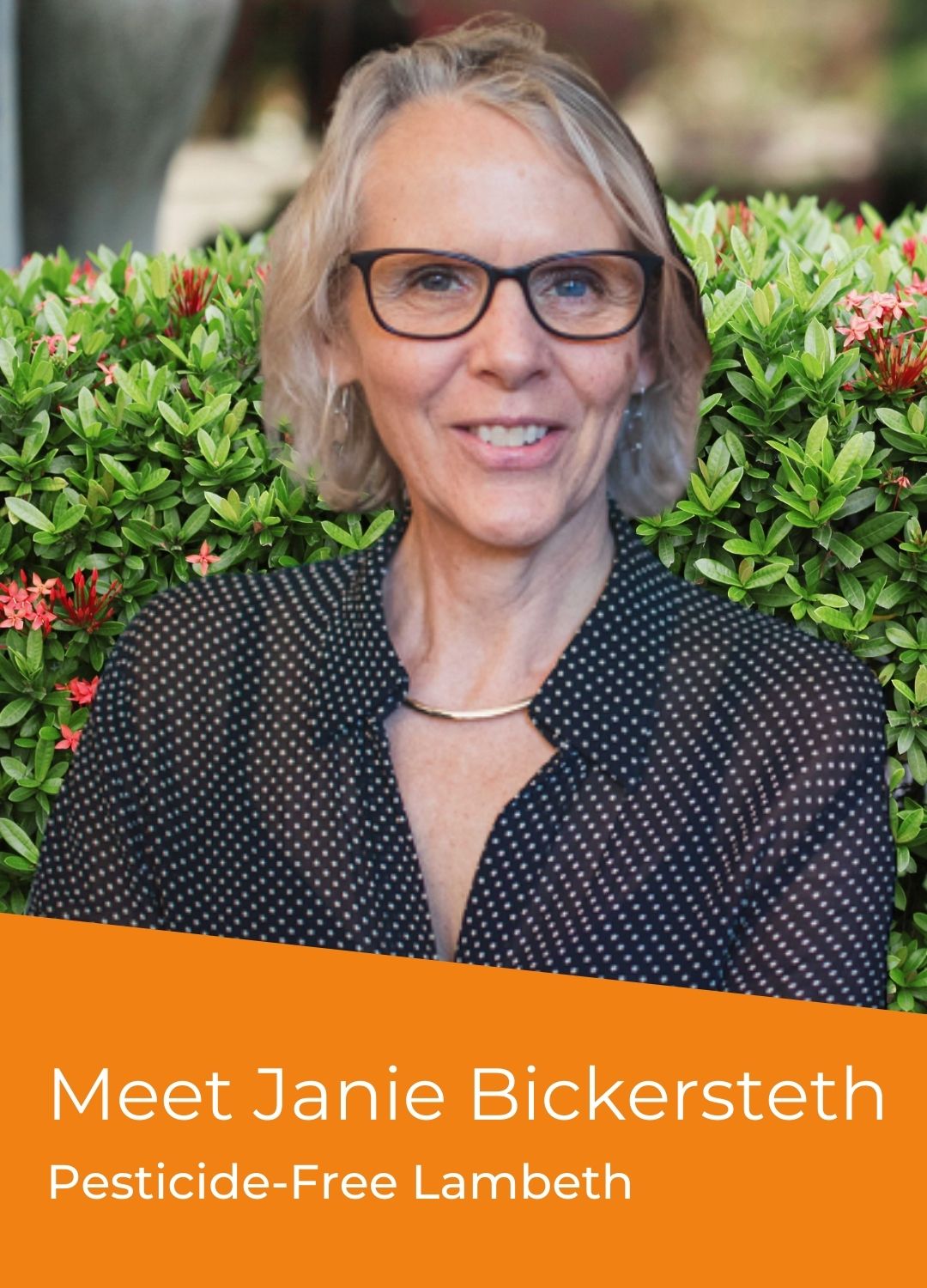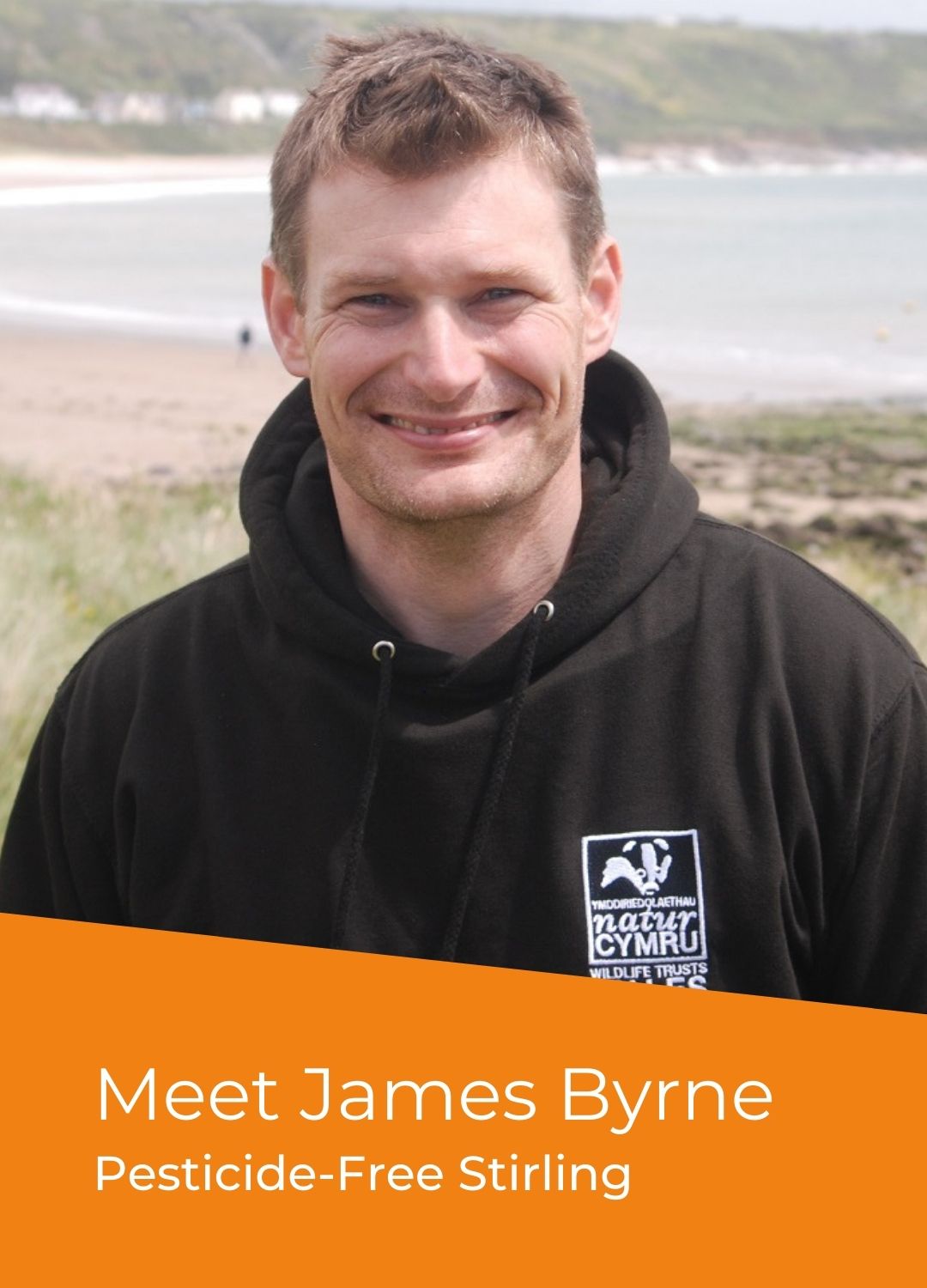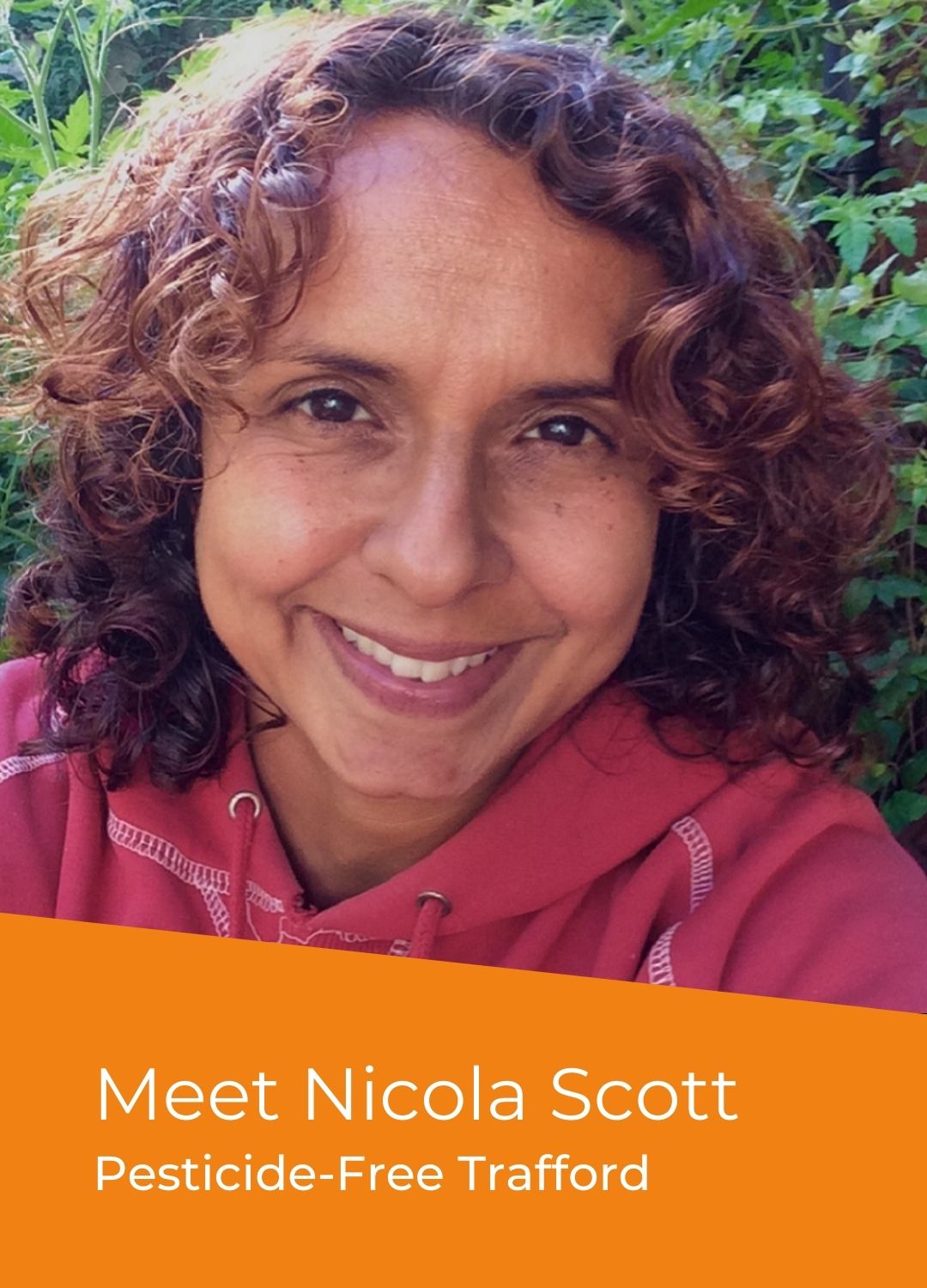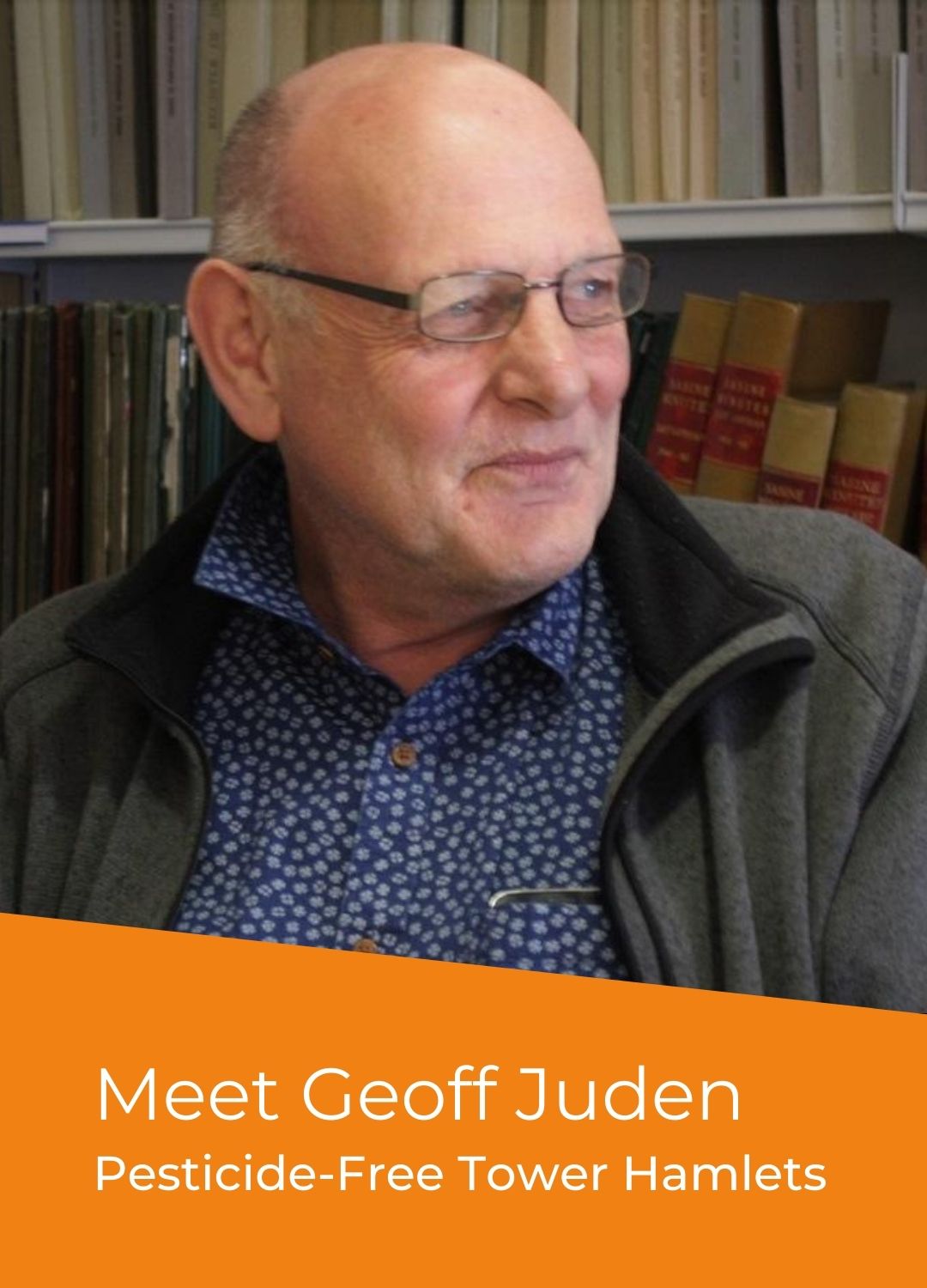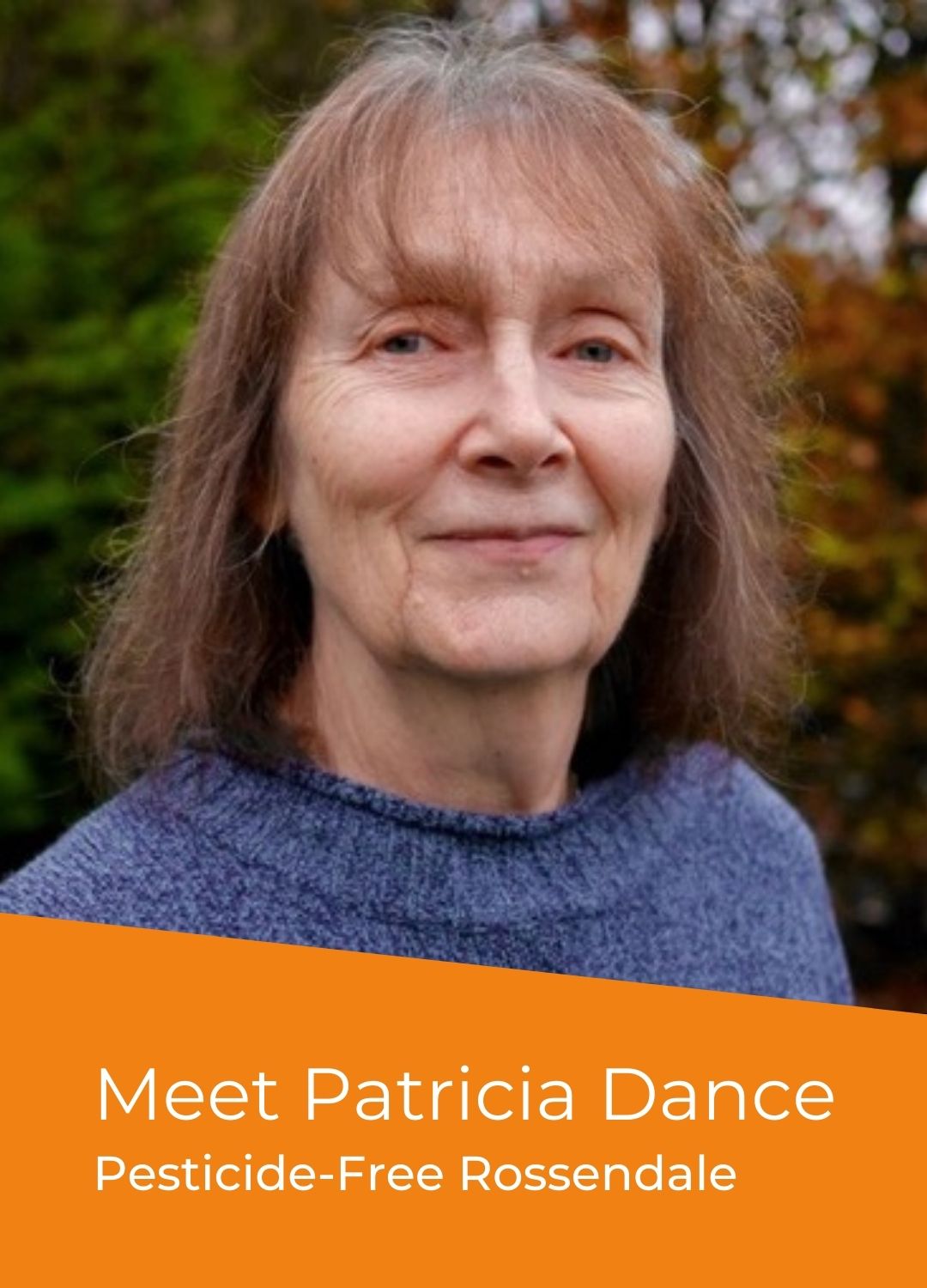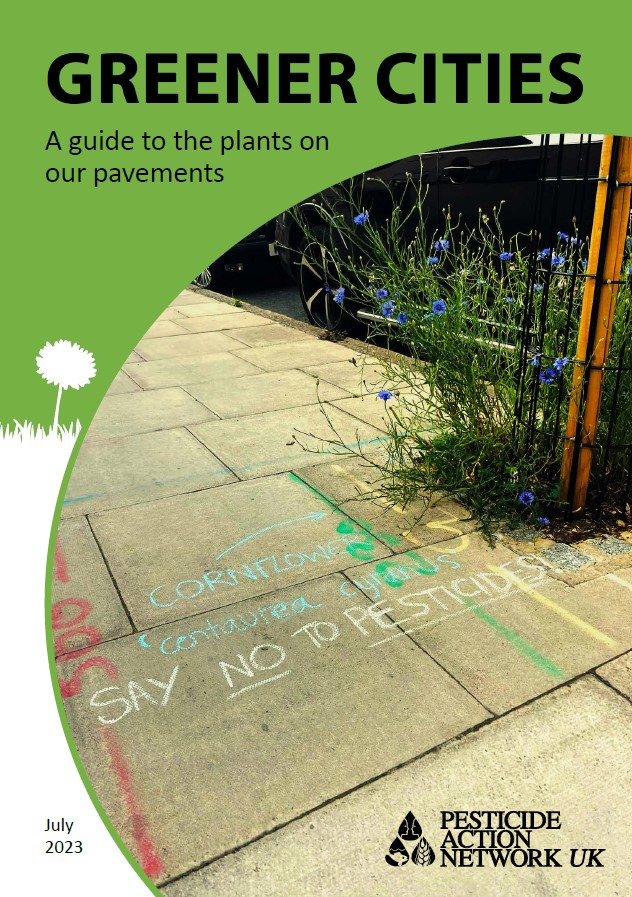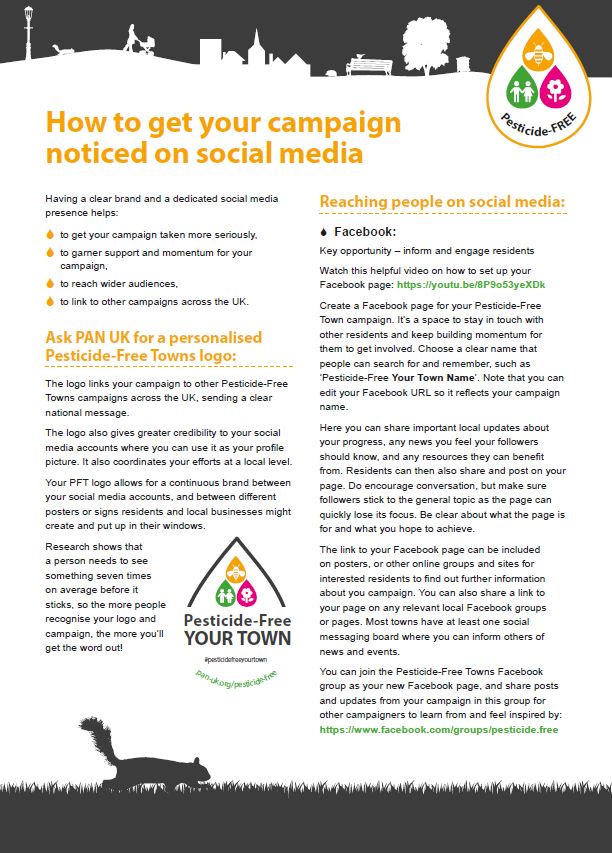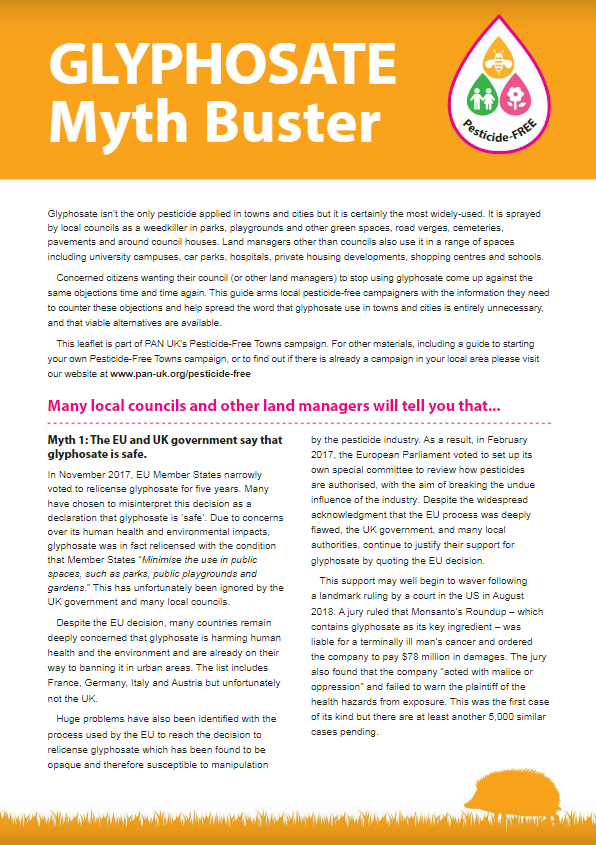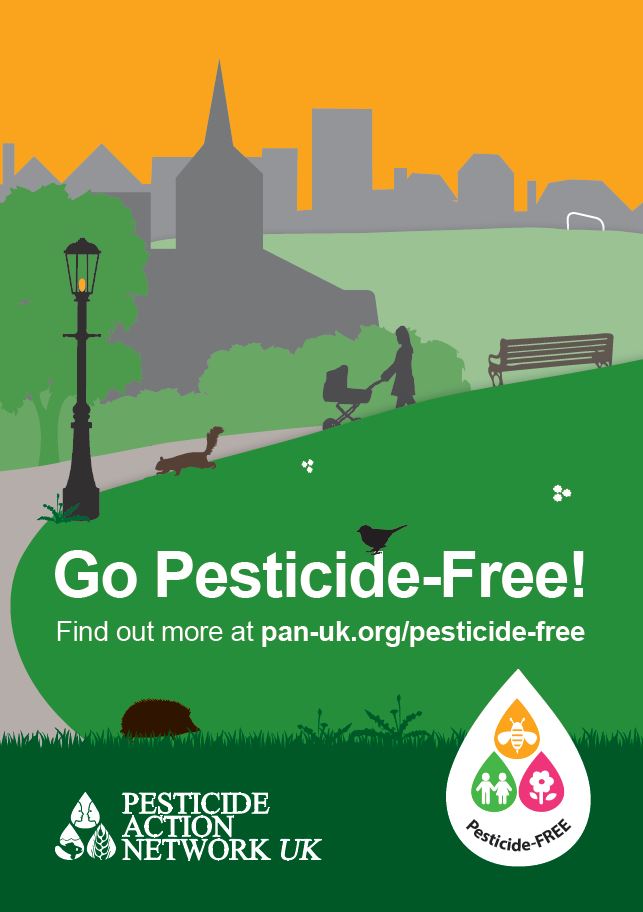I want to make my town pesticide-free
People up and down the country are calling for an end to the use of hazardous chemicals in their towns and cities. From Edinburgh to Derry, to Glastonbury and London, towns and cities across the UK are significantly reducing their pesticide use, or phasing it out altogether, thanks to campaigners like you. But there’s still a long way to go and we are here to help you make your local area pesticide-free.
You may like to start with a small online action? Take a minute to send a message to your local councillors telling them about the dangers of pesticides to people and wildlife and asking them to take our pesticide-free pledge.
Do you want to become a campaigner?
Do you want to take the next step and start campaigning in your local area? We offer expertise and advice as you develop your campaign and are also happy to support you by speaking directly to your local councillors or other land managers.
The important thing to remember is that this is your campaign and you can make a difference.
Be part of the growing Pesticide-Free Towns movement and leave a lasting legacy for your local area which protects people and the environment.
* Note that by signing up you will receive all of our emails and we will provide guidance through the campaign process. However, you do not need to sign up to use our resources below. They are free to all.
Active Pesticide-Free Towns Campaigns
The Pesticide-Free Towns movement has grown hugely since we started it in 2015. As a result, we’re no longer able to accurately track the actions of hundreds of councils around the country and so have stopped attempting to monitor individual UK council’s pesticide policies.
To find out whether your local council is still using pesticides, please contact them directly. For tips on how to do this, scroll down to see our guides to ‘Understanding your local council’ and ‘Using Freedom of Information requests’.
Get informed
Our Guide for Campaigners contains an overview of all the information you will need so is a great place to start. It contains information on where and why pesticides are used in urban areas, describes the human and environmental health effects of pesticides and provides tips on what to do when reaching out to your local council.
If you are the first campaigner in your area, try to contact any local groups that might be interested in helping you out. The most obvious would be environmental groups but there may also be groups working on health, parents groups and groups that use public green spaces. They may be keen to join forces.
Get specific
You will need to find out if your council is using pesticides. The vast majority do use pesticides so a quick google search to see if your council has gone pesticide-free should be enough. Find our useful guide on understanding your local council here.
If you can’t find any information online, email your council directly to find out. If they won’t tell you, you can draft a Freedom of Information request, which we would be happy to help you with.
Get political
So you are informed and familiar with the issues around urban pesticide use- that’s great! Now to start campaigning…
Start a petition demanding that your local council goes pesticide-free and begin collecting signatures. Some councils will have a facility on their website where local people can start a petition, or you can use one of the many online petition sites available such as Change.org. You can also choose to do a paper petition instead of an online one, or even as an addition for local residents who don’t have the internet.
Elections are a great time to get commitments from prospective councillors. Check to see if there is a council (or mayoral) election coming up in your area and try to get the candidates to pledge to go pesticide-free on all council land if elected.
Get support
To attract more concerned citizens to the campaign, try organising a public meeting or raising the issue at already existing meetings of like-minded people (e.g. local environmental groups). You might also reach out to local businesses to see if they might help promote your campaign. Find our guide on how to grow your petition here.
Get attention
Write letters to your local media, run street stalls, talk to your neighbours, friends and colleagues about your concerns.
Print off our leaflets and posters and put them up in local shops, libraries and anywhere else you can think of.
If there is an area that you know is pesticide-free, such as a local park, allotment or even your own garden, you could put up one of our ‘Pesticide- Free Zone’ signs to raise awareness around the issue.
Get strategic
You may want to target particular councillors, either those you know might be allies, those who represent the ward you live in or perhaps those who hold a relevant portfolio such as Head of the Environment Committee. Every council is structured differently, so do some research on how yours works and consider reaching out to potential allies directly. You could write them a letter, email and/or ask for a meeting to discuss the issue.
Instead of treating councillors as targets, try working with them as allies and presenting the journey towards going pesticide-free as a joint mission which you want to help them with.

